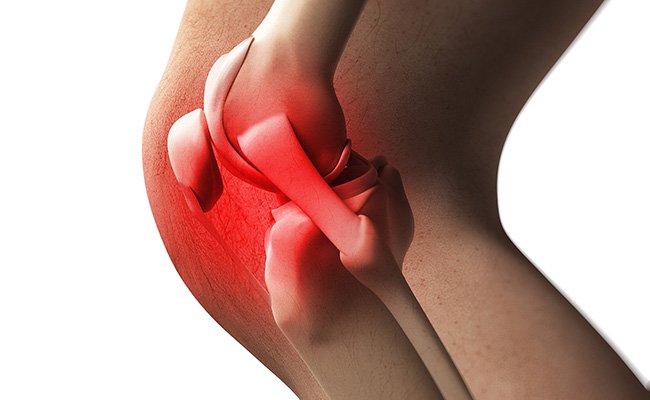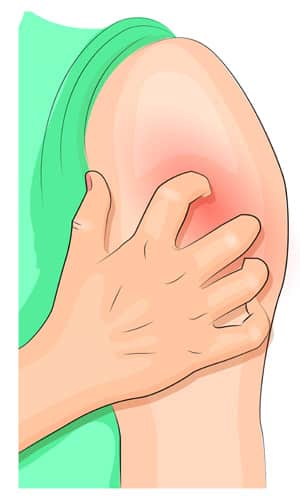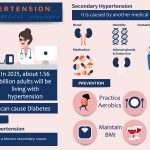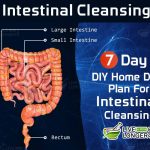The more you search about health problems common for late adulthood and older ages, the more often you see omega 3 as a recommendation. And there’s good reason for that too; omega 3 counters the effects of the stress hormone known as cortisol. Cortisol’s presence becomes abundant in your body when you’re past the young adult phase, partly due to the stresses of life, and partly due to the natural process of aging itself.
That said, you need to watch out for the signs of omega 3, as there comes a point where your regular diet does not suffice to provide you with enough of it.
Primary Symptoms Of Omega 3 Deficiency
A proper medical checkup and blood tests are surefire ways to know if you are omega-3 deficient. However, it always helps to know how to spot certain nutrient deficiencies so you can be proactive about bridging dietary gaps.
Take a look at the most common signs that you lack enough omega 3 in your diet:
- Insomnia & Fatigue
Omega 3 fish oil fatty acids EPA and DHA are more than just fancy terms you may have read on omega 3 fish oil labels. These play a vital role in energizing you. In fact, DHA naturally makes up part of your brain. It affects emotions, amongst other vital functions. When you don’t get enough of EPA and DHA, you’ll feel tired, yet at the same time unable to fall asleep due to higher stress levels.

Consuming an omega-3-rich diet, or taking high-quality supplements to fulfill the lack of the nutrient is a great start. You’ll get peaceful and longer sleep, and feel invigorated for longer periods.
- Depression & Anxiety
High stress levels due to a lack of vital nutrients not only affect sleep quality but also cause depression.
Omega 3 fatty acids play a significant role in supporting brain health. Plus, nutritionists around the world emphasize its protective and anti-inflammatory effects on the brain. Numerous studies show that omega-3 deficiencies can result in a higher likelihood of anxiety and depression.

By consuming omega 3 supplementation with a minimum of 60% EPA, ideally on a daily basis, you may experience positive effects on your depressive symptoms. Of course, proper treatment and lifestyle changes are also necessary in case of depression, especially major depressive disorder. However, omega 3 can undoubtedly help your journey toward better mental health.
- Frequent Memory Lapses
Experiencing brain fog and short-term memory loss too many times? It’s not common to be forgetful when you get older, especially if you have a family history of memory problems and cognitive diseases such as dementia. However, omega-3 fatty acids have a strong connection to memory. As mentioned above, DHA makes up part of your brain. It’s the gray matter, which in addition to emotions also affects your memory, decision-making, and learning abilities.
Low intake of omega-3 means you may experience memory lapses more often, even way earlier than what’s considered ‘older age’. Make sure to get a supplement with sufficient levels of EPA and DHA to counter foggy memory issues effectively.
- Bones & Joint Discomfort
There are endless factors that come into play when we talk about bone and joint issues. The lack of calcium and Vitamin D, as well as the frequency of physically demanding work, are top contributors to bone and joint pain.
However, inflammation is often the hidden culprit behind musculoskeletal issues. A diet high in processed food, aging, and genetic factors increase inflammation in your body. As a result, you may be at a higher risk of inflammatory conditions like osteoporosis and rheumatoid arthritis.

Consistent joint pain even at the slightest hard work is one of the earliest signs of this—and you need omega-3 for that much-needed anti-inflammatory goodness!
- Dull & Lifeless Hair
The many benefits of omega-3 also contain something for one’s vanity. Omega 3 affects your skin, hair, and even nails, as it helps strengthen cell membranes in your body. Plus, the ‘good’ fats present in omega 3 do wonders to moisturize and hydrate your skin—including the scalp and the roots of your hair.
So, if you haven’t seen a change in your hair’s dullness despite the various hair masks and biotin-rich foods and supplements—go for omega-3 supplements. These not only help bring back that lustre you desire but also minimize hair fall.
- Dry, Red, & Itchy Skin
As we covered in the previous point, omega 3 has moisturizing effects due to the presence of fat content. Your skin needs moisture, not just through lotions and creams, but also via diet.
Dry and itchy skin can be a result of weather changes, in which case the skin-hydrating effects of plentiful omega 3 in your dietary routine can help. Another reason for skin dryness and discomfort, along with redness, is chronic diseases such as eczema and psoriasis. Omega 3’s anti-inflammatory effects help alleviate the symptoms of these skin issues.

Needless to say, making sure you fulfill your daily omega-3 levels is the way to go!
- Dry Eye Syndrome
Omega 3 fatty acids play a crucial role in brain health, vision, and retinal function. Every aspect of your eye, from tear production to natural moisture levels, takes a hit when you don’t take enough omega-3.
One of the health issues you may face due to a severe deficiency of omega 3 in your diet is dry eye syndrome. It’s when your tear glands are inflamed and don’t produce enough moisture to keep your retina hydrated and thus comfortable and working optimally.

You can rely on omega-3-rich foods such as fatty fish, or omega-3 supplements for a more direct and effective approach. These help reduce inflammation and increase moisture in your eyes for relaxed and unhindered vision.
Bottom Line: Sufficient Omega 3 Levels Equal Healthier You!
While there is no fixed ideal amount of omega-3 for you to take, most health specialists agree that it is ideal to take at least 250-500mg of omega-3—specifically EPA and DHA. You can always get blood work done to be sure you have a deficiency.
Also, in cases such as depression and elevated blood pressure, you may need higher doses of omega-3. Therefore, make sure you talk to your physician to know the right dosage, as well as possible medicine interactions.


